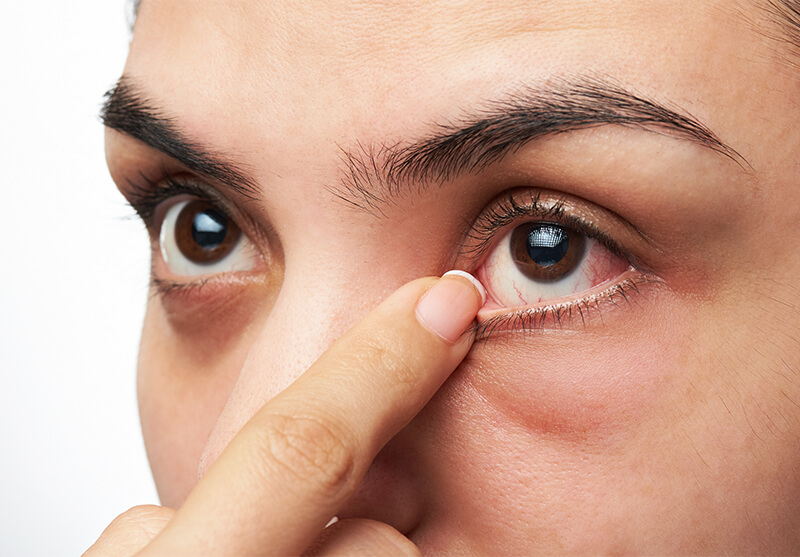Dry Eyes Can Affect Your Quality of Life
If you’ve ever suffered from dry eyes, you know how frustrating and uncomfortable it can be to get through the day. Unfortunately, nearly 5 million Americans experience Dry Eye Disease (DED), a chronic condition that can affect your overall quality of life. The negative side effects, such as irritation, scratching, and blurring, can often disrupt your daily routine. Thus, making it difficult to read, watch television, and work in front of a computer screen, just to name a few. Read on to learn more about how dry eyes can affect your quality of life, as well as treatment relief for your symptoms.
Common Causes of Dry Eye
Tears are responsible for protecting and lubricating the eyes, reducing infection, and keeping the surface of the eyes clear. Each time we blink, a protective coating of tears spreads over the front of the eye. And, when our tear film is compromised, dry eyes can occur. Overall, dry eyes may develop for a variety of reasons, but some common causes include:
- Age – people over the age of 65 are more likely to experience symptoms
- Gender – women are more likely to have dry eye as a result of hormonal changes
- Medication – antihistamines, decongestants, blood pressure medications, antidepressants, and other medications can reduce tear production
- Environment – exposure to smoke, dry and windy climates, and staring at a computer screen for prolonged periods of time can increase tear evaporation
- Medical Conditions – Those who suffer from auto-immune conditions, diabetes, thyroid problems, and issues with inflammation of the eyelids are at a higher risk for dry eyes
- Other Causes – long-term use of contact lenses and LASIK surgery can decrease tear production
The Impact on Daily Life
Chronic dry eyes can affect your quality of life in a number of ways, ranging from daily nuisances to more serious issues. For instance, persistent eye irritation can result in decreased self-confidence, work productivity, and independence. Furthermore, people who experience dry eye symptoms have reported that their condition has caused some of the following:
- Depression
- Increased medical expenses
- Inability to concentrate at work/ Missed work
- Irritability/ Impatience with family members
- Difficulty reading at night
Treatment Options
Dry eyes and DED can be a chronic condition, but over-the-counter treatment and prescription medication can help. The following treatment options may aid in keeping your eyes healthy and comfortable, as well as prevent vision issues related to dry eyes:
- Artificial Tears- for mild cases of dry eyes, over-the-counter artificial tears can help. Preservative-free drops are recommended as additives can further irritate the eyes.
- Prescription Eye Drops- for chronic dry eye conditions, prescription eye drops can increase the eye’s ability to produce natural tears. In addition, taking an omega-3 fatty acid nutritional supplement may also speed up the healing process.
- Treating Eyelid Inflammation- warm compresses, lid massages, and eyelid cleaners may help decrease inflammation and reduce dry eye.
Schedule Your Next Appointment
Don’t suffer for another day. Most health insurance companies cover treatment and office visits for dry eye, so don’t hesitate to seek treatment. Dry eye relief can make a considerable difference in your comfort and quality of life. So, schedule a visit at Looking Glass Optical today. Give us a call at 410-768-0202 or make an appointment online.
Share

